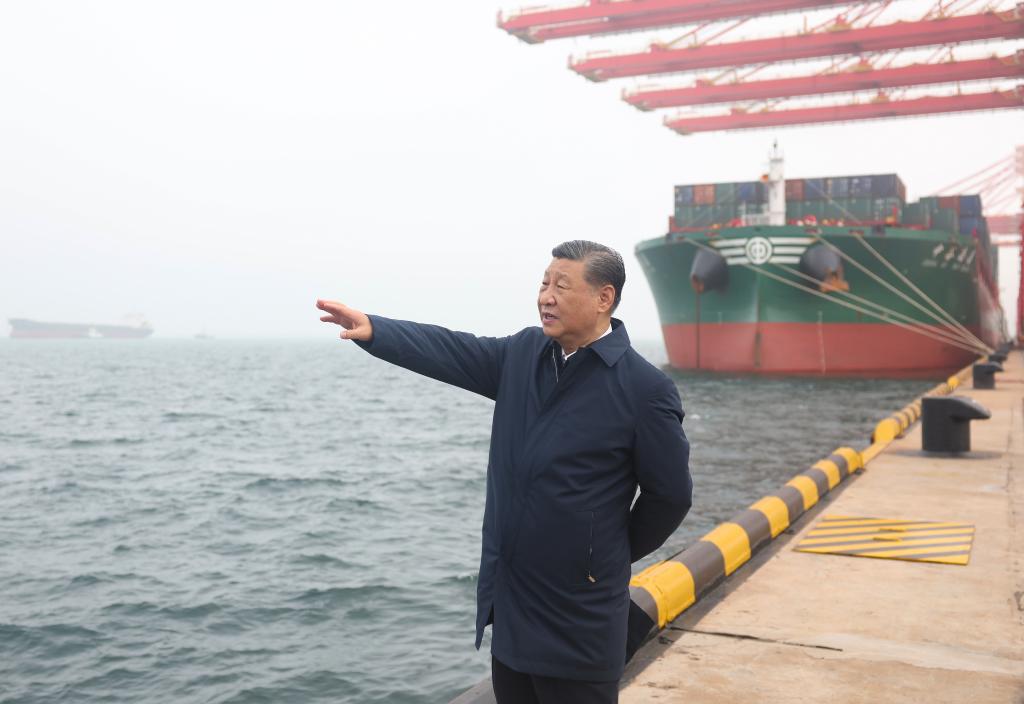
Beijing’s War on ‘Negative Energy’
Executive Summary:
- The Cyberspace Administration of China (CAC) has launched a new “clean and bright” campaign that redefines online frustration over youth unemployment, gender conflict, and social anxiety as “negative energy” that threatens People’s Republic of China’s (PRC) national security.
- Expressions that contradict the Party’s harmonious self-image are recast as foreign manipulation or malicious behavior, empowering platforms and regulators to erase alternative narratives from public discourse.
- Framing censorship as resisting Western ideological colonization, Beijing promotes its discourse-control framework as a legitimate, exportable form of digital authoritarianism.
On September 22, the Cyberspace Administration of China (CAC) announced that this year’s “clean and bright” (清朗) campaign would focus on the theme of “rectifying the problem of maliciously inciting negative emotions” (整治恶意挑动负面情绪问题). [1] The campaign targets four categories of online speech: “inciting extreme group antagonism” (挑动群体极端对立), “promoting fear and anxiety” (宣扬恐慌焦虑), “stoking cyber violence and hostility” (挑起网络暴力戾气), and “excessively amplifying pessimism and negativity” (过度渲染消极悲观) (CAC, September 22). By cracking down on speech that falls under these categories, the Party’s discourse apparatus seeks to alleviate social antagonism and the “lying flat” (躺平) subculture, and more specifically fan culture, online fraud, and conspiracy theories.
The CAC announcement followed closely after the release of a Xinhua Institute report arguing that U.S. cognitive warfare was colonizing the minds of people around the world, as well as the CAC’s decision to penalize social media platform Xiaohongshu (known overseas as Rednote) on the grounds that it was “undermining the online ecosystem” (破坏网络生态) (Xinhua, September 7; CAC, September 11; China Brief Notes, September 12). The specific targets of the “clean and bright” campaign are not identical to those detailed in the “colonization of the mind” (思想殖民) report, but they are similar. Official media in the People’s Republic of China (PRC) often frame these phenomena along similar lines as manifestations of Western cultural infiltration.
Beijing Articulates an ‘Authorized Reality’
Beijing is defining and defending an “authorized reality,” securitizing certain social governance issues in the process. It codes online expressions inconsistent with the state’s perception of society as “malicious behavior” (恶意行为) and “negative energy” (负能量) manipulated by external forces. This offers a pretext to mobilize administrative enforcement under the framework of the “total national security concept” (总体国家安全观). The Xinhua Institute report explicitly defines “external cognitive warfare/ideological infiltration” (境外认知战/意识形态渗透) as a national security threat. This framing provides both the explanatory context and the legitimacy for the current “clean and bright” campaign.
The new campaign’s criteria for online content that must be removed remains vague, leading platforms to adopt the safest approach to enforcement. Rather than making careful distinctions, platforms have opted to indiscriminately throttle posts, or to delete them outright. In this sense, the campaign is designed not to offer objective standards but to redefine which forms of expression are recognized as “real” and which must be suppressed.
In the People’s Republic of China (PRC), political mechanisms for expressing frustration are largely absent. People often turn to the Internet to vent and voice their concerns. A vivid example is the ongoing “gender war” (性别对立) in which women complain about unfair treatment both at home and at work, while men express grievances over perceived inequities in marriage, dating, and public opinion. Although much of this discussion is expressed in extreme terms, the underlying conflicts cited by both sides are rooted in their respective lived social experiences. [2] These experiences, however, stand in tension with the “authorized reality.”
The PRC portrayed in official propaganda is positive, harmonious, and orderly. Under the Party’s “scientific leadership” (科学领导), society should not be plagued by social conflicts, which it frames as phenomena unique to Western societies. Even when such conflicts do appear, they are to be understood as isolated or exceptional cases, and are sometimes attributed to the infiltration of Western ideas (Xinhua, December 4, 2021; China Digital Times, April 12, 2022). When empirical reality clashes with the state-sanctioned version of reality, the former is recast as the effects of Western cognitive warfare or the malicious incitement of negative energy.
For example, on the very first day of the campaign, Zhang Xuefeng (张雪峰), an education influencer with a total following of 65 million across major social media platforms, had all of his accounts banned. Although the authorities did not specify the reason for his cancellation, his frequent discussions about the difficulties college graduates face finding jobs likely were the primary cause (Nanfang Daily, September 25). [3] On the same day, another influencer, Hu Chenfeng (户晨风), a political commentator with over 10 million followers, was also banned across all platforms. Again, no official explanation was provided. Many observers believe the ban stemmed from his frequent remarks contrasting what he called the PRC’s “base” (基本盘)—poorer, nationalist, and socially conservative users who prefer domestic android phones—with the urban petite bourgeoisie of coastal cities, who tend to use iPhones and espouse more liberal, cosmopolitan values. In Beijing’s view, such ideological divisions are acceptable only in societies that practice “Western-style democracy” (西式民主). Hu’s commentary was therefore seen as crossing a political red line under the “clean and bright” campaign (China News, September 20).
Securitization Represses ‘Negative Energy’
Three of the four targets of this “clean and bright” campaign—“inciting antagonism,” “promoting anxiety,” and “excessive negativity”—correspond directly to three major issues that are frequently discussed among today’s youth. These are the so-called gender war, high unemployment, and overwhelming societal pressure. The CAC document does not confront these issues directly. But it reframes them in ways that make it easier to externalize their causes. This practice has appeared sporadically in recent years (Guancha, May 14, 2021; The Paper, November 2, 2021; Global Times, August, 22; iFeng, September 23). But its deployment in two documents released by separate parts of the Party’s discourse apparatus at roughly the same time indicates that Beijing is now institutionalizing the securitization of domestic social governance challenges.
By reframing “negative energy” as a national security issue, the government empower platforms and regulators to employ far more forceful measures to erase “non-authorized reality” from public view. Xi Jinping’s concept of “total national security,” first announced in 2014, extends the scope of security to encompass the political, cultural, social, and cyber domains (Xinhua, April 15, 2014). The pairing of the Xinhua Institute report (which defines an extant threat) with the CAC’s “clean and bright” campaign (which calls for eliminating that threat) is downstream of this framework. All forms of social sentiment that deviate from Beijing’s authorized view of reality can now be labeled as malicious negative energy that is harmful to national security. In this framework, social governance aimed at alleviating tensions is transformed into national security work.
Conclusion
Beijing’s developing approach to social governance at home is likely to be promoted abroad. By emphasizing “resisting the external colonization of the mind” (抵御外部思想殖民) by the West and “purifying cyberspace” (净化网络空间), it is likely to gain traction among authoritarian regimes in the Global South, especially when attached to PRC technology exports. For these countries, Beijing offers a legitimizing discourse in which social discontent and antagonistic sentiment are not the result of domestic policy missteps but the result of external infiltration. This allows the PRC to position itself as a champion of “decolonization” while profiting from the sales of a toolkit for digital authoritarian governance.
Notes
[1] The “clean and bright” campaign (清朗行动), formally known as the “clean and bright” series of special operations (清朗系列专项行动), is a nationwide cyberspace governance initiative led by the CAC, with joint participation from the Ministry of Industry and Information Technology (MIIT), the Ministry of Public Security (MPS), the Ministry of Culture and Tourism, the State Administration for Market Regulation, and the State Administration of Press, Publication, Radio, Film and Television. The first “clean and bright” campaign was launched in 2016, primarily targeting illegal content, including child pornography, fraud, and gore (Xinhua, December 31, 2016). The next campaign did not occur until 2020, when Beijing announced an eight-month operation focused on protecting the online environment for minors (CAC, July 13, 2020). Since then, Beijing has conducted multiple “clean and bright” campaigns every year, each framed around themes such as combating so-called “online chaos” (互联网乱象), “harmful information” (不良信息), “false information” (不实信息), and “malicious behaviors” (恶意XX行为), categories that are often subjective in nature and open to broad political interpretation.
[2] Liao, S. (2024). Unpopular feminism: Popular culture and gender politics in digital China. Communication and the Public, 10(2), 86-93. https://doi.org/10.1177/20570473241268066
[3] On October 22, Zhang Xuefeng’s accounts were unblocked, again without any official explanation. In his first livestream after being reinstated, Zhang stated that every university major “has great potential” (大有可为) and that graduates from any field can find satisfying jobs after graduation (Dahe Daily, 26 October).


